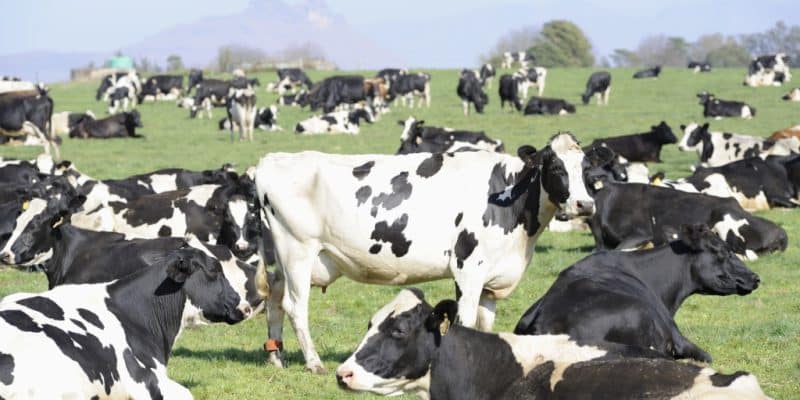While the agro-pastoral sector generates 8% of the world's methane emissions, the French multinational Danone has announced the reduction of the environmental impact of its supply chain, particularly in Africa where it is known for its "Blédina" brand of dairy products.
The French food giant Danone wants to contribute to the fight against global warming. For example, the multinational plans to reduce methane emissions from its production, particularly dairy production, by 30%, by 2030.
Specifically, the company based in Paris, France plans to implement regenerative farming practices and develop digital solutions to improve the agricultural yields of agro-pastoral workers, mobilise climate finance in partnership with the Environmental Defense Fund, an American non-governmental organisation (NGO) specialising in ecosystem restoration.
This eco-responsible approach will also contribute to the implementation of the “Global Methane Pledge” adopted by more than 111 countries at the 26th United Nations Conference of the Parties on Climate Change (COP26) held in November 2021 in Glasgow, Scotland. Indeed, Danone is among the ten biggest plastic polluters in the world behind the American multinational Coca-Cola and the Swiss Nestlé, according to the international movement Break Free From Plastic.
Read also-AFRICA: Unilever and GENO launch joint venture for sustainable consumption
In July 2020, Danone announced a €2 billion investment plan for ecological transition. In this package, the CAC40 company (the main index of the Paris stock exchange, editor’s note) is devoting 900 million euros to recycling its packaging (water bottles and yoghurt pots) so that “100% of it is made of polyethylene terephthalate (PET) by 2025”. However, these efforts have not yet convinced environmentalists, who have recently taken the company to court. This is particularly true of the Surfrider Foundation, which campaigns against marine pollution by plastic waste, particularly in South Africa, Morocco and Egypt, where Danone subsidiaries are also located.
Benoit-Ivan Wansi






